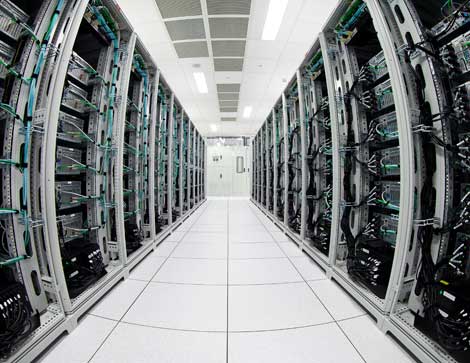Here’s What’s Next for CenturyLink’s Data Center BusinessHere’s What’s Next for CenturyLink’s Data Center Business
Unit prepares for becoming a platform for new owners’ cybersecurity-focused solution

Last year was capped with two blockbuster data center deals that in a way represent the closing of a full circle.
The data centers Verizon sold to Equinix for $3.6 billion came into the carrier’s fold in 2011, when it acquired Terremark Worldwide, a company founded and at the time led by Manny Medina, the man who is now at the helm of the company that made the second blockbuster deal, acquiring a $2.3 billion portfolio of data centers from CenturyLink, also a major telco.
Coincidentally, CenturyLink gained the bulk of this portfolio in its acquisition of Terremark competitor Savvis, which also took place in 2011. At the time, telcos were going after data center assets with a vengeance, expecting their network assets to give them advantage in the growing cloud and colocation markets.
Obviously, things didn’t go as planned.
There are some big differences between the two big data center deals that came at the tail end of 2016, however. The assets Equinix cherry-picked in its deal with Verizon will be integrated into an already massive global portfolio, while CenturyLink’s colocation business will become the foundation of a whole new company’s business.
The name of the company has not been announced. What we do know is that it is a joint venture between Medina’s tech-focused private equity firm Medina Capital and the 30-year-old European buyout investor BC Partners. Its plan is to use the technologies of four of Medina’s previously acquired cybersecurity companies to provide a range of infrastructure products with emphasis on security, all running on top of the data center platform acquired from CenturyLink.
The JV is not just buying the data center assets; it is taking over a full colocation business unit, complete with an operations team, a global product management team, sales and marketing teams, as well as a recently added data center innovation, engineering, and expansion function. The number of people crossing over to the new company is north of 700.
Leadership of CenturyLink’s colocation business put the unit together as soon as they first learned that the company was eyeing a potential sell-off, Drew Leonard, CenturyLink’s VP of global colocation, said in an interview with Data Center Knowledge. They “basically got the band back together,” he said; they “constructed a stand-alone functional business unit, dedicated to colocation services.”
See also: CenturyLink Data Center Team Keeps Eye on the Ball Despite Uncertain Future
The new owners are inheriting CenturyLink’s colocation customers, including CenturyLink itself. The carrier is planning to continue providing its IT infrastructure services running in the same data centers, which it will be leasing once the acquisition closes (sometime in the first quarter, according to the companies). “It’s just going to be a customer relationship now,” Leonard said.
He expects the colocation business to continue growing under the new ownership, which has signaled that it intends to invest in its growth, something CenturyLink’s executives said they were not willing to continue doing.
Medina and company’s “vision is to grow the business and incorporate other businesses that they own into the data center offering,” Leonard said. “They made quite a number of investments in cybersecurity companies that they intend to roll into the business. I think they see it as a good strategic fit in terms of delivering a solution.”
About the Author
You May Also Like







